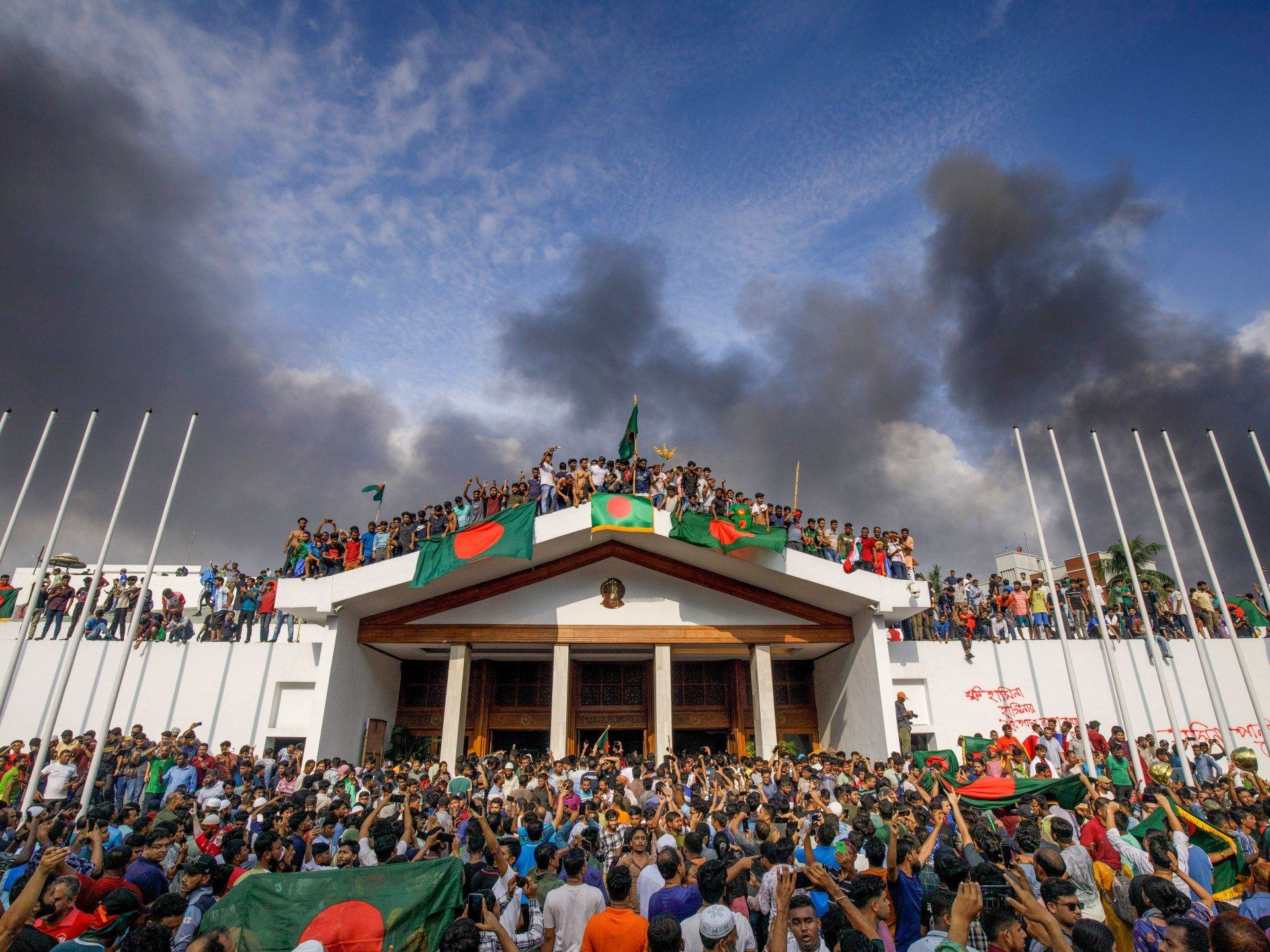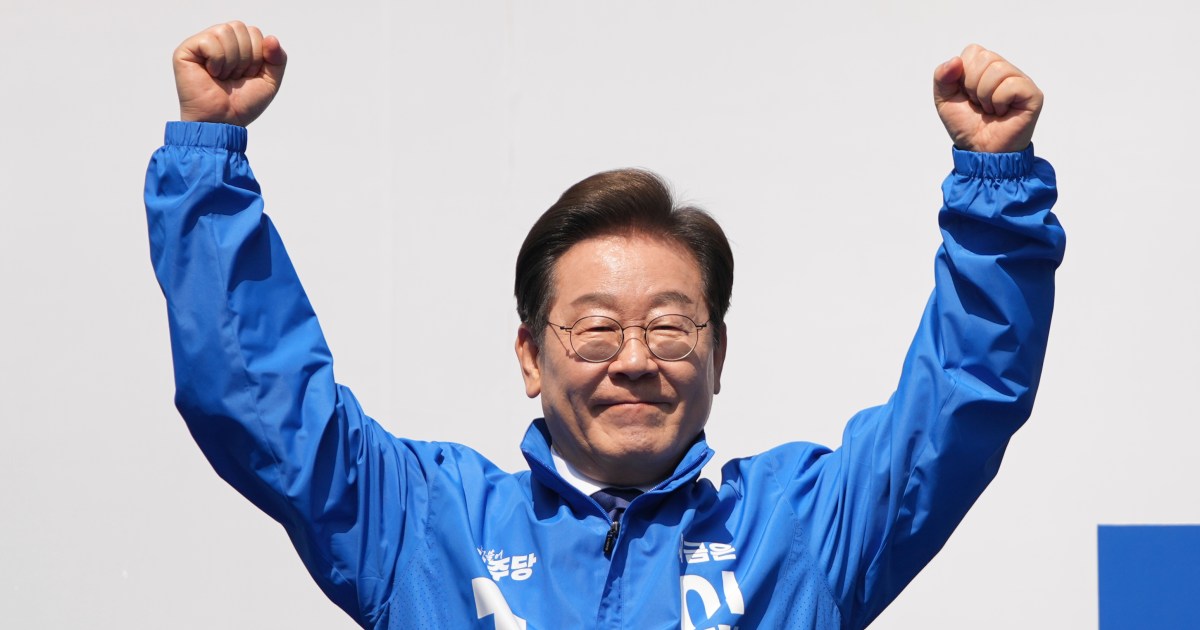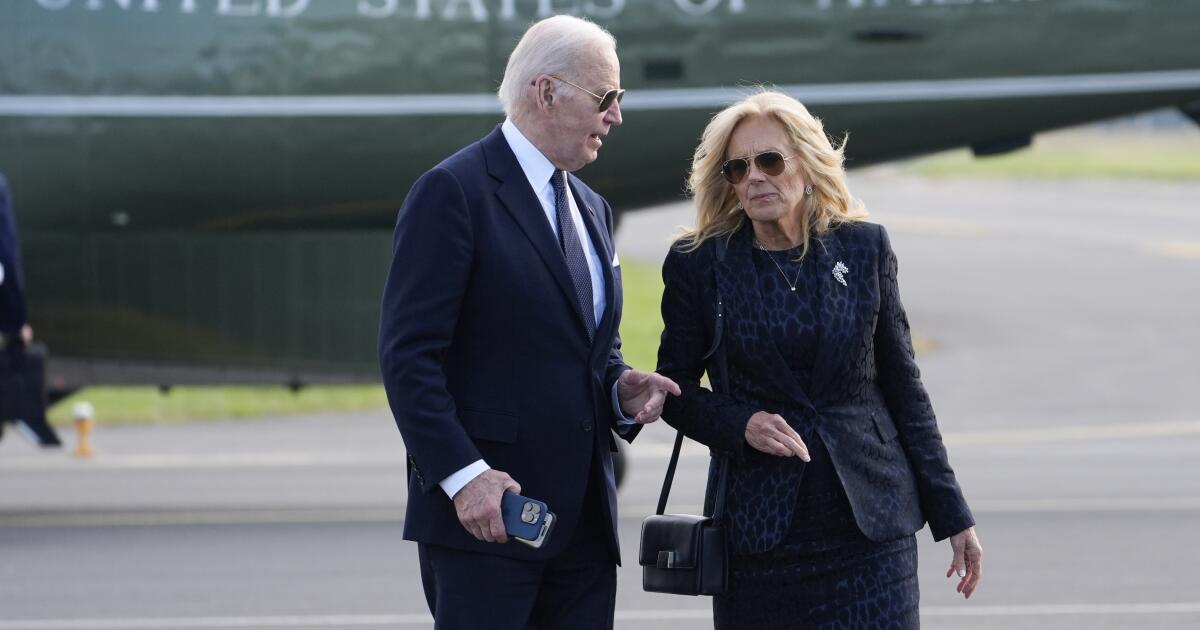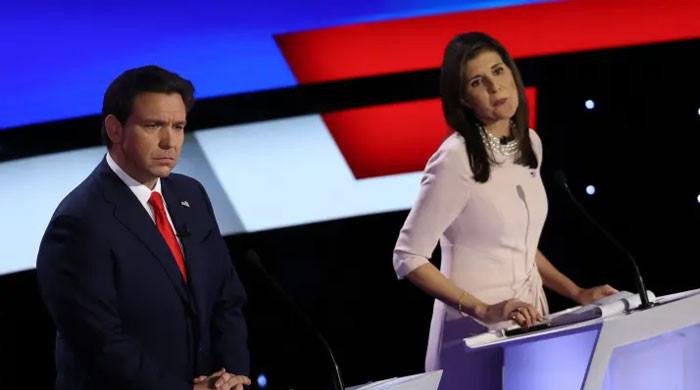By every quantifiable measure, Bangladesh’s deposed prime minister, Sheikh Hasina, was the most entrenched, dominant and brutal dictator the country had known since independence. She imprisoned, exiled and eliminated most of her political peers like no other ruler in South Asian history. She brought all the powers of the Bangladeshi state under her command so effectively that at some point it became the state.
But a leaderless university student movement defied her with marches at pre-announced dates and locations. Within weeks, these young revolutionaries had drawn the nation into the streets to the point that Hasina had to take a helicopter to flee. They achieved something that the former prime minister’s established political rivals had tried for more than a decade but consistently failed to do.
While the young revolutionaries and their supporters have much to celebrate, the road ahead for the country will not be without challenges.
A recipe for a successful student movement
The beginning of the end for Hasina came when a group of young people began demanding the scrapping of an unfair quota system in the distribution of civil service jobs, which essentially gave preferential treatment to the relatives of her political cronies.
To organize their protests, the students created a shared leadership structure, with leaders playing the role of coordinators. They called their coalition the Students Against Discrimination Movement. The coordinators came from public and private educational institutions.
What might have been calmed by some simple promises of future reforms was exacerbated by crude comments from the prime minister and brutal repression from her security forces. But the protest organisers were battle-hardened and knew exactly what to expect.
Just six years ago, many of them had participated as teenagers in another wave of mass protests focused on the country’s lawless transport sector. Those protests erupted after a commercial bus ran over two students. The vehicle that caused those deaths was owned by a company linked to a relative of a minister.
Just like in 2024, in 2018 the youth were mercilessly beaten by Hasina’s civilian militia, i.e. the student wing of the Awami League party. The use of violence succeeded in suppressing the protests, but not before this generation of revolutionaries had gained sufficient experience in organizing successful protests, creating alternative command structures, using improvised communication techniques under internet shutdowns and evading government surveillance, etc.
All these skills helped them in their successful attempt to overthrow the most ruthless dictator in the history of Bangladesh.
Is this the end for Sheikh Hasina?
Hasina had already had to leave Bangladesh before. While living in Europe, a bloody coup against her father, President Sheikh Mujibur Rahman, took place in 1975, killing almost her entire family. She extended her stay abroad and did not return to the country until the early 1980s. She quickly rose to prominence on the political scene and managed to create a cult following among members of her father's Awami League.
Following another military coup in 2006, both Hasina and her main political rival, Khaleda Zia, were on the verge of losing their right to participate in Bangladeshi politics. Zia refused to go into exile and remained in Bangladesh under house arrest. Hasina opted for the safe exit and spent time in Europe and the United States before returning to Bangladesh. She contested the 2008 elections and won by a landslide.
But she is unlikely to return to power triumphantly in 2008. Given the massive bloodshed and indiscriminate killings that took place during her tenure, it will be extremely difficult for Hasina, 76, to regain her political fortunes this time around.
It turns out that General Waker Uz Zaman, the military chief who ultimately asked Hasina to leave the country, is a relative of hers by marriage. However, the prospect of a successful counter-coup to facilitate her return to Bangladesh is unlikely at this point, given popular resentment towards her government.
The fact that no other political figure of her stature has had to flee the country in the face of popular anger has permanently damaged Hasina's reputation as an invincible leader. After all, she was pursued by hundreds of thousands of youths armed with sticks and bricks, while her men had all the guns and fired indiscriminately. This ignominious exit will make her future return politically untenable.
What lies ahead for Bangladesh?
On August 8, three days after Hasina fled, a caretaker government was sworn in, headed by one of Hasina’s nemeses, Dr Muhammad Yunus, Bangladesh’s only Nobel laureate. Dr Yunus, one of the few prominent political figures who enjoys nationwide respect, will be the chief adviser, a title equivalent to prime minister.
The 16-person advisory group (the equivalent of cabinet ministers) he selected includes civil society figures, several of whom have received international acclaim. Among the advisors are two prominent coordinators from the ranks of the student movement. Dr. Yunus and his selected advisors have so far received positive media and public acceptance, but they have a difficult task ahead of them.
At this moment, student organizers are demanding that Bangladeshi politics be freed from politicians associated with corruption and mismanagement, not only during Hasina's government but also in the governments that preceded her.
The problem is that Hasina's political DNA is in every corner of the Bangladeshi state she left behind. The judges, bureaucrats, police and military commanders she handpicked continue to run the show. Making the new government acceptable to the people will require a complicated process of administrative reshuffles, dismissals and outright arrests of Hasina's staff – a process that has already begun.
In his first televised address, General Zaman promised to bring justice to the victims of indiscriminate killings by the state apparatus during Hasina’s reign. Newly appointed advisers to the interim government echoed this intention. However, such a process of accountability will undoubtedly be lengthy and it is unclear whether it can be completed under his watch. Reforming the police, civilian bureaucracy and military leadership to restore public confidence in any future electoral process will also take time.
Dr Yunus also has to address several challenges in relations with Bangladesh's two big neighbours: India and China.
India, the country that was Hasina's most vocal supporter on the world stage, is shocked and saddened by her departure. It is concerned about the potential breakdown of law and order and the targeted repression of Bangladesh's large Hindu population.
Gobinda Chandra Pramanik, one of Bangladesh's most prominent Hindu community leaders, has sought to calm India's fears, saying that Hindus are facing as much lawlessness as the rest of the country at the moment and that things are gradually calming down as volunteers from major political parties are turning up to protect the Hindu community.
The cabinet of advisers and the main political parties in general may have to deal with Indian pressure to keep people who posed serious threats to the country's national security from returning to power. That negotiation will be complicated.
Hasina’s geopolitical chessboard was to counter US human rights concerns by addressing India’s security fears and engaging with China’s business interests. Now, the future government may be busy assuaging India’s security concerns by responding to American concerns about China. Orchestrating this geopolitical dance will benefit from the broad international buy-in that Dr Yunus brings, but execution and enforcement may remain difficult.
The interim government's main task remains to organise a new general election. Demands for a court to try the thousands of unlawful killings and serious human rights violations, both locally and internationally, may complicate the Awami League's participation in future national elections. The party itself may also base its future electoral participation on conditions that favour the return of Hasina's clan, or even Hasina herself.
All other parties will also have to navigate legal hurdles, given the serious criminal charges brought against her political opponents under Hasina to prevent them from running in elections. Among them is Tarique Rahman, the de facto leader of the Bangladesh Nationalist Party, who is serving a life sentence for his alleged role in a plot to assassinate Hasina in 2004. Bangladesh’s largest Islamist political party, Jamaat-e-Islami, was banned on August 3 and has been barred from running in elections since 2013.
Given the immense obstacles, Bangladesh's current interim government is likely to last several months, or even a year. When sworn in, the advisers gave no indication of the length of their mandate.
Many Bangladeshis see Hasina's ouster as their second independence, the first being when they split from Pakistan 53 years ago.
Everywhere there is exuberance and hope for a better future, but optimism must be cautious. Whether this latest revolution will deliver a fairer, freer, less brutal and democratic Bangladesh will depend on the viability of the demands put forward by the revolutionaries and the skill of the new government not only in managing them but also in coping with pressures from outside forces.
The views expressed in this article are those of the author and do not necessarily reflect the editorial stance of Al Jazeera.












